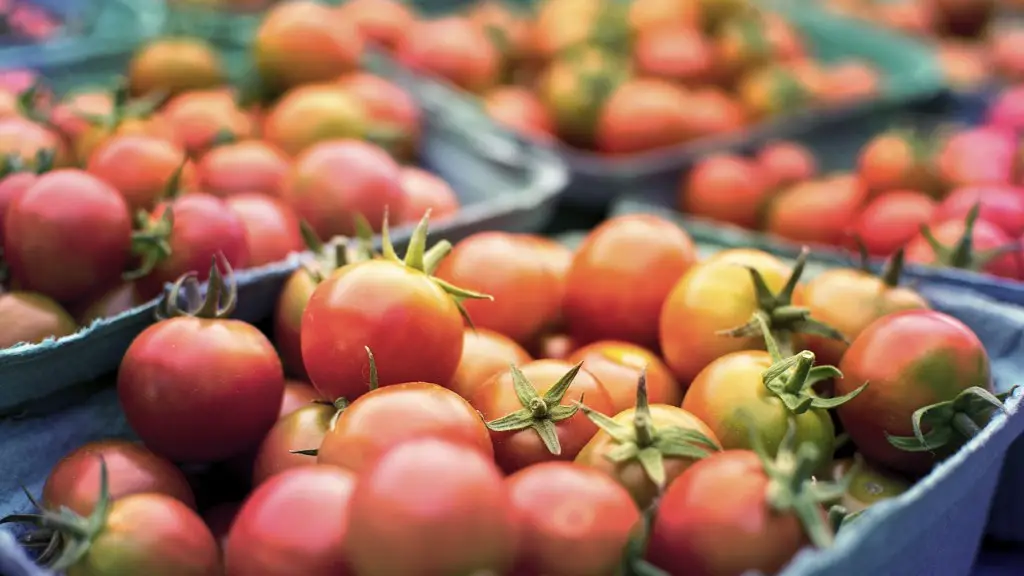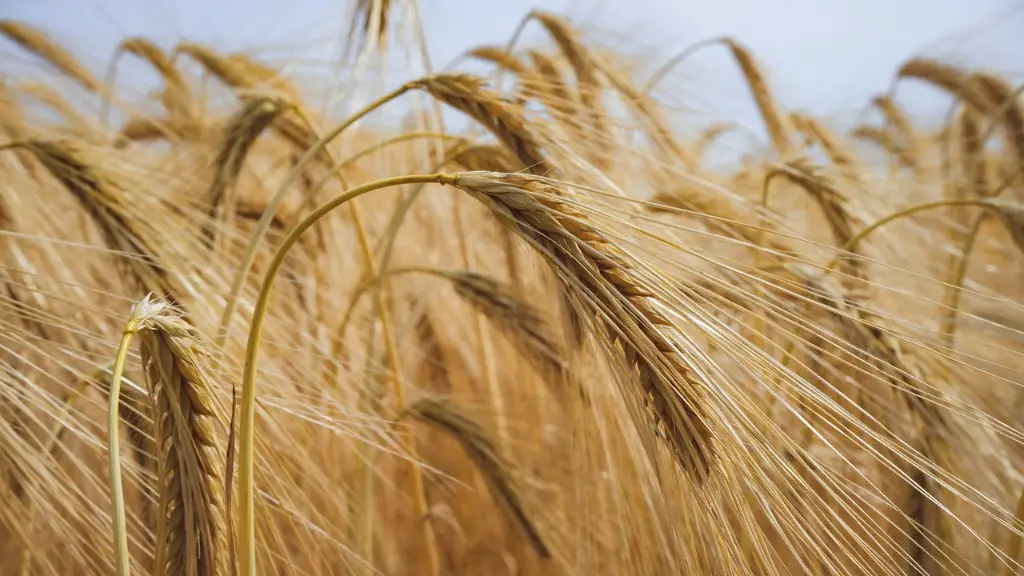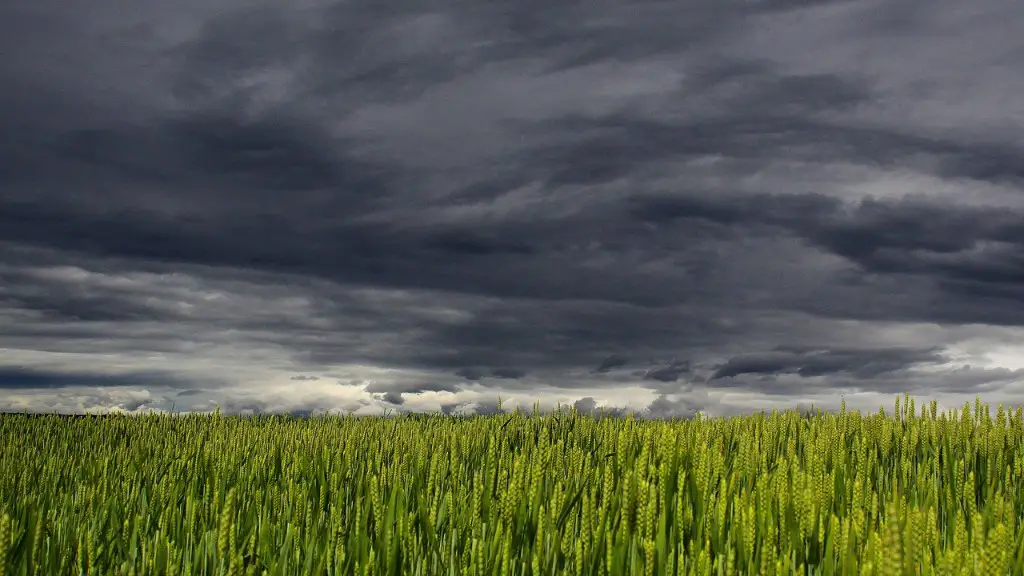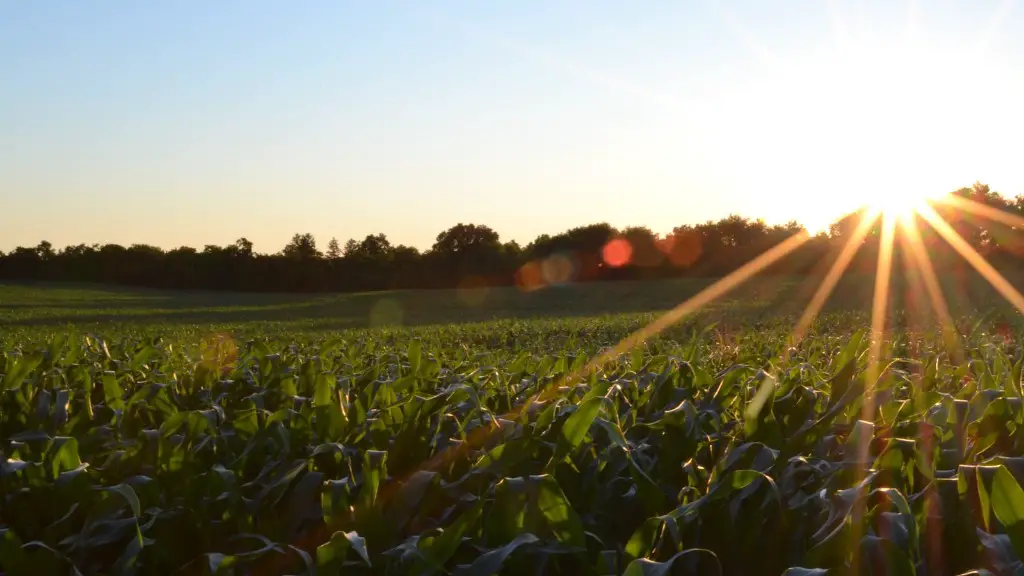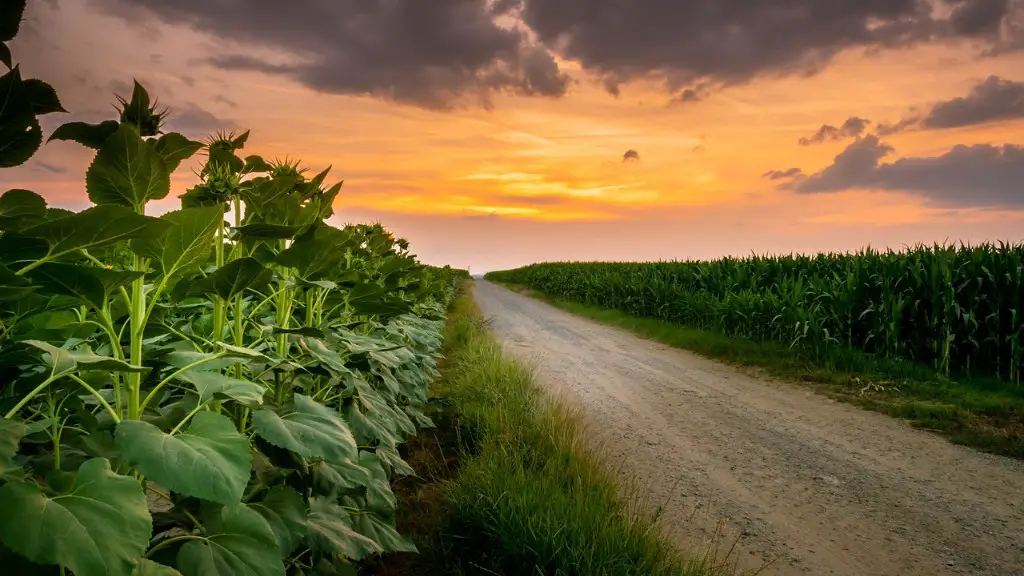Climate change is already making African agriculture more difficult. The rain is becoming more erratic, and droughts and floods are becoming more common. These changes are making it hard for farmers to know when to plant their crops, and are causing crops to fail. Climate change is also making it difficult for livestock to find food and water. As a result, livestock are dying, and milk and meat production is decreasing.
There is a lot of variability in Africa when it comes to climate change and its effects on agriculture. In general, a warmer climate can lead to increases in crop yields, but can also lead to more droughts and heat waves, which can devastate crops. Changes in precipitation patterns can also lead to irrigation problems and increases in pests and diseases. All of these factors can have a big impact on agricultural production in Africa and the people who depend on it.
How does climate change impact agriculture?
Climate change has the potential to disrupt food availability, reduce access to food, and affect food quality. For example, projected increases in temperatures, changes in precipitation patterns, changes in extreme weather events, and reductions in water availability may all result in reduced agricultural productivity. This could lead to increases in food prices and decrease in food security for vulnerable populations. It is therefore important to monitor the potential impacts of climate change on the food system and to develop adaptation and mitigation strategies to reduce the risks to food security.
Climate change is already having a significant impact on Africa and is expected to cause even more extreme weather conditions in the future. The continent is particularly vulnerable to the effects of climate change due to its high levels of poverty and its dependence on agriculture. In addition, many African countries are located in regions that are particularly prone to climate-related disasters such as droughts and floods.
The impacts of climate change are already being felt across Africa, with rising temperatures and changes in precipitation patterns resulting in more extreme weather conditions. This is having a devastating impact on agriculture, which is the main source of livelihood for many people on the continent. In addition, climate change is contributing to the spread of diseases such as malaria and cholera, and is also exacerbating water shortages.
Africa is working hard to adapt to the effects of climate change, but its limited resources mean that it is struggling to keep up. There is an urgent need for more international support to help Africa deal with the impacts of climate change.
What are the two main impacts that climate change has on agriculture in South Africa
Climate change is expected to have a number of effects on agriculture, including decreased soil fertility, the need for changes in farming infrastructure, unpredictable weather patterns and lower ground and surface water availability. All of these factors could lead to decreased crop yields and increased costs for farmers. As a result, it is important for farmers to be aware of the potential effects of climate change on their operations and to plan accordingly.
Climate change impacts on African agriculture are of major concern not only to African farmers, but also to national governments, regional decision makers, and international organizations. Variability of crop yields has long been a major cause of migration in Africa. As climate change causes more extreme weather conditions, it is likely that this trend will continue, and even intensify. This could lead to large-scale displacement of people, as well as to increased conflict over scarce resources.
Does climate change destroy agriculture?
Climate change will affect agricultural production in NSW, with changing conditions potentially attracting new pests and diseases, and changing the areas that are suitable for farming. This will have a significant impact on the state’s economy, as agriculture is a major industry in NSW. The state government is working with farmers and other stakeholders to adapt to the changing climate, and to ensure that agricultural production in NSW remains strong.
Climate change is already affecting agriculture around the world, with farmers and ranchers seeing changes in the timing of seasons, more extreme weather events, and shifts in what crops and livestock can be raised successfully. As the effects of climate change intensify, agriculture will become increasingly vulnerable, with production potentially declining by as much as 20 percent by 2050. Such a decrease would have a devastating impact on food security, rural livelihoods, and the global economy. To adapt to the changing climate, farmers will need to adopt new practices and technologies, including more efficient irrigation, drought- and heat-resistant crops, and improved forecast and early warning systems. With the right policies and investments in place, agriculture can not only withstand the impacts of climate change but also play a key role in mitigating it.
Where in Africa is most affected by climate change?
Most models suggest that Africa will experience more extreme weather events as a result of climate change, including more frequent and intense heatwaves, droughts, and floods. This will have a significant impact on agriculture, water availability, and human health. In addition, climate change is expected to exacerbate poverty and social inequality across the continent.
It is unfair that Africa has to suffer the most from climate change, when it has contributed the least to the problem. The continent is extremely vulnerable to the effects of climate change, due to its low level of socioeconomic development. This makes it hard for countries to adapt to changing conditions and to recover from natural disasters. It is crucial that the international community provides support to Africa in order to help the continent overcome this immense challenge.
What country in Africa is most affected by climate change
Climate change is already having a significant impact on Mozambique, and is expected to only become more severe in the coming years. The World Bank has warned that the country is “on the front line of climate change”, and that the effects of climate change are already hampering economic growth and development.
In addition to its limited fiscal resources, Mozambique is also coping with high levels of social vulnerability. Climate shocks such as floods and droughts are becoming more common, and they are taking a toll on the country’s infrastructure, crops, and livestock. As a result, many people are being forced to abandon their homes and livelihoods.
The World Bank is working with the government of Mozambique to help the country adapt to the effects of climate change and to build resilience against future shocks. However, the Bank emphasizes that Mozambique will need significant international support to address the challenges posed by climate change.
Agriculture in South Africa faces a variety of risks associated with climate change, such as changes in rain patterns, increased evaporation rates, higher temperatures, increased pests and diseases and changes in diseases and pest distribution ranges, reduced yields and spatial shift in optimum growing regions. These risks are likely to lead to increased costs, reduced crop production and, ultimately, food insecurity. In order to adapt to these risks, South African farmers will need to adopt new technologies and practices, including water-saving irrigation, improved pest and disease management, and more efficient crop production.
How does climate change affect farming and food security in South Africa?
Climate change is a huge threat to South Africa and its economy. The changing climate means that crop production and livestock farming are both affected, which in turn affects exports. The impact of climate change is also being felt in terms of an increase in temperatures, rise in sea water levels, and floods. This is a major concern for the country and its people.
With the increase in temperature, there has been a decrease in agricultural productivity growth by 34%. This is more than any other region in the world. Climate-related hazards are a major driver of displacement in Africa.
What are the main problems facing Africa’s agriculture
There are many factors that contribute to poverty, and these factors often cut across sectors and are related to one another. Some of the most important factors include a lack of adequate social infrastructure, gender inequality, and a high incidence of poverty. Without a strong social safety net, many people are unable to climb out of poverty. Additionally, gender inequality perpetuates poverty, as women often lack the same opportunities and resources as men. Finally, a high incidence of poverty creates a vicious cycle, as poverty makes it more difficult to access education, healthcare, and other resources that could help lift people out of poverty.
There are a number of factors that affect the success of farming. These include climate, nature of soil, land topography, availability of capital, availability and affordability of farm input, crop and livestock pests and diseases, availability and demand of market, and Government interventions, support and programmes.
Climate is a major factor affecting farming. Different crops require different climatic conditions for optimal growth. For example, rice requires a warm and humid climate, while wheat requires a cool and dry climate. Farmers must carefully choose crops that are suited to the climate of their region.
Nature of soil is another important factor. Different crops require different types of soil for optimal growth. For example, rice requires a mud-like soil, while wheat requires a sandy soil. Farmers must carefully choose crops that are suited to the type of soil in their region.
Land topography is also a significant factor. Field topography affects the type of crops that can be grown, as well as the amount of irrigation and drainage required. Farmers must carefully consider the topography of their land before choosing crops.
Availability of capital is another important factor. Farmers need money to buy seed, fertilizer, and other inputs. They also need money to buy equipment and pay for labor. Availability
Why is farming so difficult in Africa?
Many African farmers lack the basic things many farmers outside the region take for granted, like access to improved crop varieties, fertilizers, and irrigation. Although some progress has been made, addressing these weaknesses by themselves is not enough. African farmers need help in other areas as well, such as education and training, access to markets, and infrastructure development.
Climate change will have a negative effect on crop yields, as rising temperatures and carbon dioxide concentrations will decrease the yields of major commodity crops. This will lead to higher food prices and less food security around the world.
Conclusion
Climate change affects agriculture in Africa in a number of ways. First, rising temperatures and changes in precipitation patterns can cause crop failures and reduce farm productivity. Extreme weather events, such as droughts and floods, are also becoming more common, further jeopardizing food security. In addition, climate change can lead to increases in pests and diseases, which damage crops and reduce yields. All of these impacts make it more difficult for smallholder farmers in Africa to produce enough food to feed their families and earn a livelihood.
Climate change has a huge impact on agriculture in Africa. Changes in temperature and rainfall patterns are already causing problems, and it is expected that these changes will become more extreme in the future. This will make it even more difficult for farmers to produce enough food to feed their families and communities. Climate change is also likely to lead to more pests and diseases, which will further damage crops and livestock. All of these factors will have a severe impact on food security in Africa.
